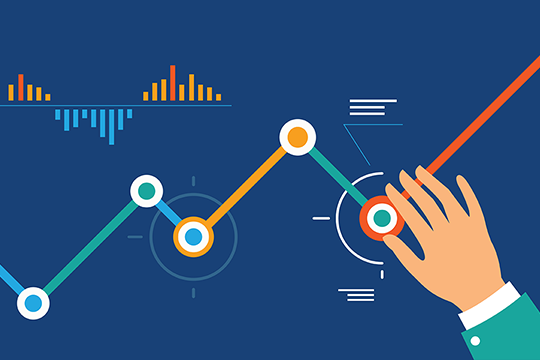
Even though we seem to have only recently recovered from the last recession, it looks as though another downturn could be lurking on the horizon. As a result, savvy CFOs and their FP&A teams are keeping a closer-than-usual eye on corporate and personal expenses, in order to conserve funds.
This has traditionally involved poring over data to see how much individual employees are spending on what items, with which vendors. Not only was it a time-consuming effort, but it often produced a pretty rudimentary level of insight, and rarely uncovered more than macro trends. However, with the introduction of sophisticated expense management solutions, finance teams can now get on-demand insight into trends and spending patterns, which can be identified through charts and dynamic dashboards, instead of staring at eye-strain-inducing spreadsheets for hours.
While the traditional goal for expense analysis has been to track total spend versus department budgets, or identify those with excessive personal expenses, the ability to analyse and parse data more rigorously has opened the door to providing much more actionable insight. This can be used in a number of ways to drive down costs by minimising wasteful and inappropriate spend, which could deliver thousands or even millions of dollars in savings for the organisations. Some of these areas include:
Identify opportunities for vendor discounts
The ability to view companywide expense spend by vendor provides travel managers with an immediate insight into which vendors your organization uses the most. This insight can be leveraged to negotiate discounts or favorable rates with your vendors. If, for example, you discover that across the organisation you book 2,000 nights a year with a global hotel chain, demonstrating this (and the associated cost) on a straightforward dashboard – which can be drilled down into for more detail – is significantly more compelling than having to laboriously open countless spreadsheets and highlight line items.
Spot wasteful spending patterns
Analysing spending patterns can also enable organisations to identify spending patterns which could be wasteful or otherwise avoided by more careful planning or establishing expense policies. This could range from something as simple as bulk buying office supplies (to avoid buying lower quantities more frequently, at a higher per-unit cost), to mandating gasoline be bought at lower cost stations (and providing payment cards for that chain to enforce this).
Minimise the true cost of sales
The cost of sales goes far beyond salaries, bonuses and sales tools. However, many other expenses, such as travel and entertainment, fall into other budget categories and can often be overlooked. By allowing deeper analysis into expenses incurred by individuals across budgets codes over time, organisations can obtain a greater understanding of the true cost of each sale, and how these can be reduced to increase the lifetime value of each customer.
Reduce expense fraud
Although only one in 20 employees file fraudulent expense claims, its potential impact on organizations can’t be understated. Analytics can also provide a vital tool to identify and subsequently prevent expense fraud. One example of where this can happen is an employee that takes advantages of an organisation’s requirements to provide a receipt for transactions over £25, by submitting a series of fake expenses for £24. While these transactions may get missed by a human reviewer, running analytics across the organisation’s expenses can identify and flag patterns of behavior that could be either out of policy or fraudulent.
Be the bottleneck buster
Pull together in-process credit card and out-of-pocket spend that are not yet exported from to the financial system. Customers love the insight into accruals and the help this gives to period-end close.
We also see best practices around tracking KPIs such as Open Approvals Aging to fix bottlenecks. No one wants a delay in reimbursement cycle times!
To learn more about how analytics can give you a deeper insight into expense trends at your organisation, and help you maintain a closer control on costs, check out Chrome River ANALYTICS.
Search
Subscribe
Latest Posts
- 9 Signs it’s Time to Switch Expense Management Systems
- Gartner and Ardent Partners Advise How to Build a Best-in-class Accounts Payable Operation
- When Cash (Control) is King: Is Your Accounts Payable Strategy Optimised for a COVID-19 World?
- Getting the Most Out of Your Spend Data with Emburse Insight Advisor
- How We Did It: Supporting Front Line Healthcare Workers During the COVID-19 Outbreak
Posts by Category
Our choice of Chrome River EXPENSE was made in part due to the very user-friendly interface, easy configurability, and the clear commitment to impactful customer service – all aspects in which Chrome River was the clear winner. While Chrome River is not as large as some of the other vendors we considered, we found that to be a benefit and our due diligence showed that it could support us as well as any large players in the space, along with a personalized level of customer care.
We are excited to be able to enforce much more stringent compliance to our expense guidelines and significantly enhance our expense reporting and analytics. By automating these processes, we will be able to free up AP time formerly spent on manual administrative tasks, and enhance the role by being much more strategic.